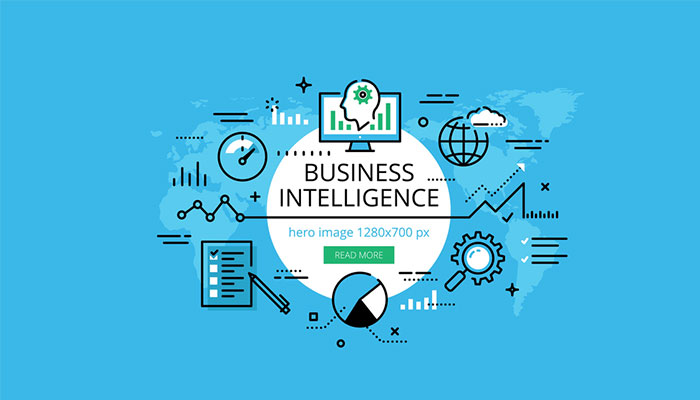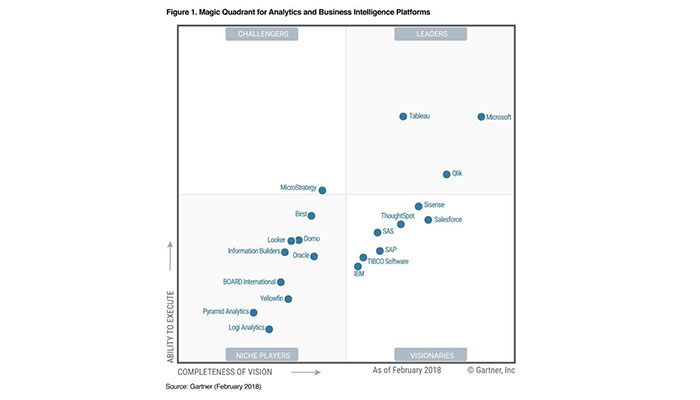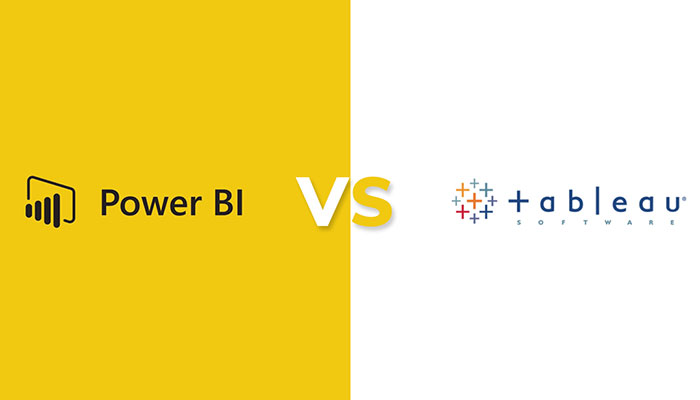BI Solutions: Microsoft Power BI vs Tableau
BI directly influences an organization’s strategic, tactical, and operational business decisions. BI supports fact-based decision making using historical data. BI platforms are often used as front-ends for big data systems that contain a mix of structured, unstructured, and semi-structured data. Modern BI software typically offers flexible connectivity options to connect to a variety of data sources. It is well suited for big data architectures with the relatively simple user interface (UI) of most BI tools.
What is Business Intelligence?
Business intelligence (BI) is a technology-based process that analyzes data and provides actionable insights to help executives, managers, and employees make informed business decisions. As part of the BI process, organizations collect data from internal IT systems and external sources. Then prepare it for analysis, query the data, and create data visualizations, BI dashboards, and reports to make the results of your analysis available to business users.
This data is used for operational decision making and strategic planning. The ultimate goal of BI initiatives is to make better business decisions that help organizations increase revenue, improve operational efficiency, and gain a competitive advantage. To achieve this goal, BI includes analytical, data management, and reporting tools, as well as a variety of data management and analysis methodologies.
Why business intelligence matters
In general, the role of business intelligence software like Microsoft Power BI, Tableau, etc. is to use relevant data to improve organizational performance. Companies that use BI tools and technologies effectively can turn collected data into valuable insights into business processes and strategies. This information can be used to make better business decisions that increase productivity and profits, leading to faster business growth and higher profits.
Without BI, organizations cannot easily leverage data-driven decision-making capabilities. Instead, management and employees make key business decisions based primarily on other factors, such as accumulated knowledge, prior experience, intuition, and gut feeling. Although these methods can lead to good solutions, they are prone to errors and mistakes due to the lack of basic data.
Business intelligence benefits
A best-in-class approach to BI gives organizations a competitive advantage by reducing the time and effort required to acquire, integrate, implement, evaluate and act on new data.
The better organization manages data, the more it can benefit from BI. These leaders in data processing put enormous pressure on all competitors who are unable to recognize potential data in a timely manner. Late adopters need to accelerate their analytics ambitions to keep pace with competitors and new market entrants. Because BI is the heart of any data-driven enterprise, it becomes the epicenter of innovation. Increasing organizational impact and increasing efficiency are the ultimate goals of implementing a new BI tool. However, with the right BI skills, there are many additional benefits.
- Improve data accuracy
- Make better decisions faster
- Identify and reduce inefficiencies
- Improving mission-critical results
- Eliminate waste, fraud and abuse
- Improve employee productivity and morale
- Improve transparency and service at all levels
- Sharing of data between functional business areas
- Gain a better understanding of financial and operational information
- Increase your return on investment by reducing your total cost of ownership
Business Intelligence Solutions
As can be seen in the image below, Tableau and Microsoft BI are among the leaders of comparative tables in the field of BI. In between, of course, there are other software such as: Qlik, Sisense, Thoughtspot, Salesforce, MicroStrategy, etc. In the following, we introduce and compare the two pioneers of this field.
Microsoft Power BI
Microsoft Power BI is a business intelligence and business information management platform that provides non-technical business users with tools to collect, analyze, visualize and share data. The Power BI user interface is very familiar to users who are familiar with Excel, and its integration with other Microsoft products makes it a very versatile service tool.
Tableau BI Suite
Tableau is a BI suite that entered the market in 2003. Its product range mainly includes tools for online data processing, visualization and data display. Among various data analysis activities, Tableau primarily focuses on data visualization. In terms of user group, it is suitable for both data analysts and business users.
Tableau’s analytical user interface requires almost no coding knowledge to query and generate data. Tableau also supports sharing information across the organization with the help of dedicated servers. But as easy to use as it sounds, it also offers a robust set of tools for server/data/metadata management.
Microsoft Power BI vs Tableau
Power BI and Tableau are both great data analytics and business intelligence tools with different target customers. Power BI is a great option for casual employees in a company who are more interested in self-service business intelligence and not necessarily interested in complex data analysis. This is because Power BI is more intuitive and easy to use, so it is a good choice for users who want to start working with data analysis but do not have a high level of expertise or degree in this field.
Tableau, on the other hand, is a little more complicated to understand and use its full capabilities. However, it is more powerful and therefore more suitable for employees with experience and knowledge of data analysis.
Some differences between these two licensed products
Setting Up
Power BI has three main products namely Desktop, Mobile and Server. The desktop and mobile versions offer desktop and mobile respectively, while the dedicated cloud server is for Software as a Service (SaaS). There is also Power BI Data Gateway, which is a gateway between the Power BI service and locally available data sources and the Power BI Report Server, which provides reports such as mobile, desktop, etc. reports.
Tableau Desktop is Tableau’s basic desktop and presentation application, while Tableau Online creates visualizations. This solution is completely hosted in the cloud and Tableau Server is a server product for an organization. Tableau also offers Tableau Public, a free, demo software.
Price
Power BI is relatively cheaper than Tableau. There is a free version, a monthly subscription and a pro version, which makes Tableau more expensive than Power BI. While Power BI is a Microsoft product, users do not necessarily need an Office365 subscription to use Power BI.
Data sources
Power BI provides less access to different data sources compared to Tableau. But it still has access to various resources such as files, databases, power platforms, Azure, etc. Some file options include Excel, Text/CSV, XML JSON, PDF, etc.




